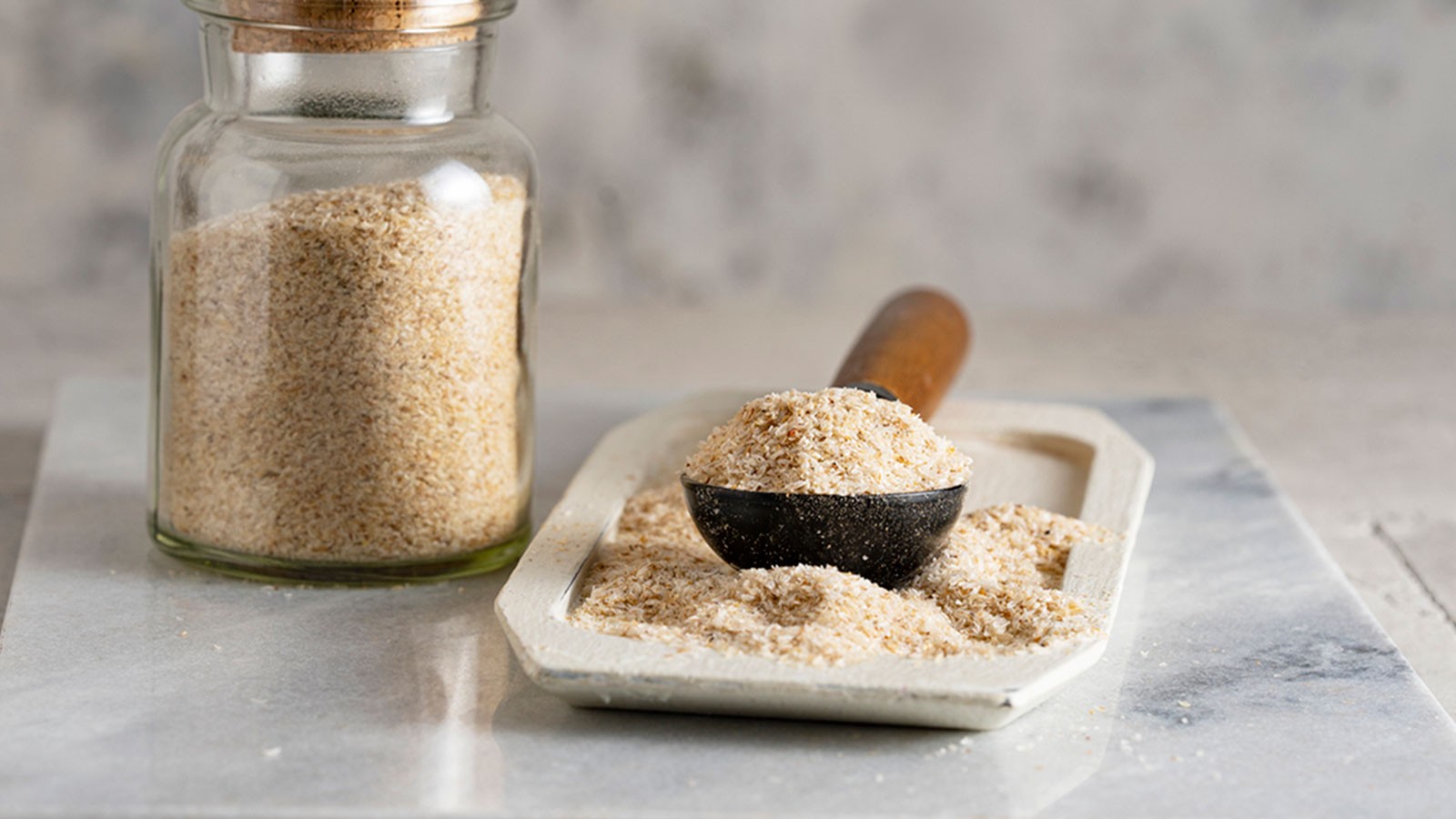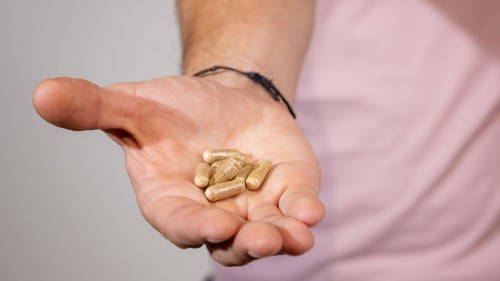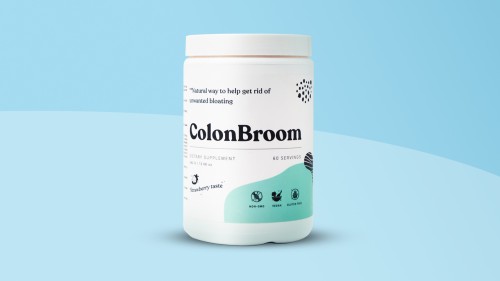A Dietitian Explains the Benefits of Psyllium Husk Powder, Plus Sources
Published on July 24, 2022
Medically Reviewed by Natalie Olsen, MS, RDN
Psyllium husk is a soluble fiber that can offer several health benefits, including relief from constipation, diarrhea, and bloating. It may also help lower cholesterol, regulate blood sugar levels, and promote weight loss.


Though psyllium husk is most commonly known as a laxative, recent research has shown that it may offer other potential health benefits.
For example, psyllium husk has been shown to improve cholesterol levels and blood sugar control.
This article will explore the science behind these claims and more. Additionally, we’ll discuss possible side effects and provide dosage recommendations and sources for this supplement.
Keep reading if you’re looking for a simple way to enhance your health.
What Is Psyllium Husk?
Psyllium husk is a soluble fiber that comes from the seeds of the Plantago ovata plant. It’s sometimes called psyllium fiber.
Psyllium husk powder is made by grinding down psyllium husk seeds into a fine powder, which can then be added to food, beverages, or taken as a supplement.
The powder swells up and forms a gel-like substance when it comes into contact with liquids.
This gel-like substance helps add bulk to your stool and makes it easier to pass, working as a gentle, natural solution for people with constipation or diarrhea.
Psyllium is also often taken as a supplement to help lower cholesterol, manage blood sugar levels, and promote weight loss.
Health Benefits of Taking Psyllium Husk Powder
Gut Health and Digestion
Psyllium husk is prebiotic. This means it provides food for the beneficial bacteria in your gut. These bacteria are essential for gut health and many other aspects of health, including immune function and mental health.
Psyllium husk’s lack of fermentation in the intestine contributes to its ability to act as a bulk-forming laxative. (1)
As a soluble fiber, it also helps soften stools and promote regularity. (2)
Heart Health
Fiber binds to cholesterol in the digestive tract and helps eliminate it from the body. (3)
Increasing your fiber intake can help reduce your cholesterol levels and your risk of heart disease.
Psyllium husk has consistently been shown to help lower total cholesterol and low-density lipoprotein (LDL) levels. (4, 5)
However, the effects appear to be minor.
Taking psyllium husk in conjunction with dietary and lifestyle changes can improve your cholesterol levels.
Blood Sugar Regulation
Psyllium husk may help regulate blood sugar levels. This is likely due to the fiber content slowing down sugar absorption.
Supplementation with 10.5–15 grams of psyllium fiber daily for six to eight weeks has been shown to significantly reduce blood glucose levels in people with diabetes. (6, 7)
Additionally, psyllium husk has been shown to improve insulin sensitivity in people with type II diabetes. (7)
Psyllium husk should not be used to replace other treatments. Instead, it may be used along with other methods to help regulate blood sugar levels.
Talk to your doctor to see if using psyllium to aid in blood sugar regulation is right for you.
Weight Loss
Psyllium husk is popularly used as an ingredient in weight loss supplements. This is because increased fiber intake can make you feel full for longer after eating — potentially reducing your food intake.
Because psyllium husk promotes feelings of fullness, it may assist in a small reduction in weight, although research is conflicting.
One study involving 141 patients showed that 3.5 grams of psyllium husk twice a day before lunch and dinner promoted sustained weight loss over a 6-month period. (8)
However, a review of 22 studies showed no significant reduction in weight with psyllium supplementation. (8)
Dosage
The clinical dose of psyllium husk powder is typically 6–15 grams per day, spread out into 2–3 doses. It is best to consume at least eight fluid ounces of water with this supplement. (9)
It may be taken with meals or between meals.
Psyllium husk supplements, such as dry seed or husk, come in different doses and forms. It is essential to follow the dosage instructions on the package.
You may want to begin with a lower dose, such as ½ teaspoon in 8 ounces of water, and increase gradually over a few days to avoid side effects, such as gas and bloating. (10)
Side Effects and Safety
Psyllium husk powder is generally well tolerated and is considered safe when taken as directed.
The most common side effects are intestinal discomfort, such as bloating, gas, and constipation. (6)
If you experience these side effects, stop taking psyllium husk powder and talk to your doctor.
It is important to drink plenty of fluids when you take psyllium husk or psyllium fiber. This will help prevent constipation and other side effects.
Psyllium can interfere with how your body absorbs some medications, so it is important to take psyllium at least two hours before or after taking other medications. Talk to your doctor before taking psyllium husk if you are on medications.
You may be allergic to psyllium husk if you experience difficulty breathing, hives, vomiting, or swelling of the face, mouth, throat, or tongue after taking it. (11)
If you experience allergic-like reactions to psyllium, contact your doctor right away.
Psyllium husk may not be suitable for people with certain medical conditions, such as intestinal blockages, difficulty swallowing, or digestive disorders.
If you have any concerns, speak to your doctor before taking psyllium husk or psyllium fiber.
Nutritional Facts
A one teaspoon (4 g) serving of psyllium husk powder contains: (12)
- Calories: 15
- Fiber: 3 grams
- Protein: 0 gram
- Carbs: 4 grams
- Fat: 0 grams
Fiber needs will vary based on age and sex.
Women and men 50 and under should eat at least 25 and 38 grams of fiber daily, respectively. Women and men 51 and older should eat at least 21 and 30 grams, respectively. (13)
Psyllium husk powder is a good source of fiber and is low in calories and fat. This makes it a healthy addition to your diet.
Sources and Where to Find Psyllium Husk Powder
Psyllium husk powder (ground psyllium seeds) is the most common form of psyllium.
It’s often sold as a fiber supplement in scoopable powder or capsule form. Psyllium husk powder is also an ingredient in some over-the-counter (OTC) laxatives.
Psyllium husk powder is available in most health food stores and online.
Examples of brands of psyllium husk powder supplements include:
- Anthony’s Organic Psyllium Husk Powder
- Bellway Super Fiber
- Konsyl Daily Psyllium Fiber
- Now Psyllium Husk Caps
- Metamucil Sugar-Free (uses artificial flavor and color)
You can also find psyllium husk in some foods such as whole-wheat bread, cereals, granola bars, muffins, and crackers. It is sometimes added to processed foods as a source of dietary fiber.
Some food products containing psyllium husk include:
- Kellogg’s All Bran Buds Breakfast Cereal
- NuGO Fiber d’Lish (bars)
- Metamucil Fiber Thins (wafers)
Check the ingredient list of a product to see if psyllium husk has been added.
Frequently Asked Questions
How does psyllium husk work?
When psyllium husk is taken with water, it swells and forms a gel. This gel helps add bulk to your stool and acts as a laxative, helping you move your bowels more easily.
Psyllium husk is also often used as a natural remedy for diarrhea. This is because the gel-like quality of psyllium husk can help to slow down the movement of food through your digestive system, giving your body more time to absorb the nutrients.
How can I use psyllium husk powder?
Psyllium husk powder can be added to food or drinks to increase your fiber intake. It is often added to smoothies, yogurt, oatmeal, and baked goods.
You can also take psyllium husk powder in capsule form.
If you're using psyllium husk powder as a laxative, it is important to drink plenty of fluids. This will help to prevent dehydration.
How much psyllium should I take?
The recommended dose of psyllium husk powder is 6–15 grams, taken with eight ounces of water, up to three times daily. When taking psyllium husk as a supplement in capsule form, it is important to follow the dosage instructions on the package.
How long does psyllium husk take to work?
For constipation or diarrhea, psyllium husk usually works to produce a healthy bowel movement within 12 hours. However, it may take up to three days for psyllium to have its full effect. (11)
Can psyllium husk help with weight loss?
Psyllium husk may help with weight loss by promoting regularity and increasing feelings of fullness, but more research is needed.
Still, psyllium husk is high in fiber while being low in calories and fat. This makes it a healthy addition to your diet if you're looking to lose weight.
Are there any interactions I should be aware of?
Psyllium can interfere with how your body absorbs some medications. As a result, it is essential to take psyllium at least two hours before or after taking other medications.
What are the side effects of psyllium husk?
Psyllium husk is generally safe and well-tolerated. However, some people may experience side effects such as bloating, gas, cramps, or diarrhea. It is best to start with small amounts at a time and work your way up to avoid symptoms.
Is psyllium husk the same as Metamucil?
Metamucil is made from psyllium husk powder. However, there are some differences between Metamucil and pure psyllium husk powder supplements.
For example, some formulations of Metamucil contain sweeteners and flavorings, while pure psyllium husk powder does not.
The Bottom Line
Psyllium husk powder is a popular ingredient in many commercial laxatives and fiber supplements.
Psyllium husk powder can be a helpful addition to your diet if you’re looking to increase your fiber intake. It is a source of soluble fiber, which can help regulate digestion and promote regularity.
It may also help lower cholesterol levels and aid in blood sugar regulation.
Despite potentially increasing feelings of fullness, more research is needed to determine its effectiveness in weight loss.
Psyllium husk powder is generally well tolerated, but some may experience side effects like gas, bloating, and abdominal discomfort.
It is important to drink plenty of fluids when taking psyllium husk. It can cause constipation and may present a choking hazard if not taken with enough fluids.
Speak with your healthcare provider first before taking supplements, especially if you are on certain medications.
At WellnessVerge, we only use reputable sources, including peer-reviewed medical journals and well-respected academic institutions.
- Clinical Data Support that Psyllium Is Not Fermented in the... : Official journal of the American College of Gastroenterology | ACG:
https://journals.lww.com/ajg/Citation/2013/09000/Clinical_Data_Support_that_Psyllium_Is_Not.35.aspx - Comparison of the effects of psyllium and wheat bran on gastrointestinal transit time and stool characteristics - PubMed:
http://www.ncbi.nlm.nih.gov/pubmed/2831263 - Fiber-full eating for better health and lower cholesterol - Harvard Health:
https://www.health.harvard.edu/blog/fiber-full-eating-for-better-health-and-lower-cholesterol-2019062416819 - Psyllium fiber: Regularity and healthier lipid levels? - Harvard Health:
https://www.health.harvard.edu/heart-health/psyllium-fiber-regularity-and-healthier-lipid-levels - Psyllium supplementation in adolescents improves fat distribution & lipid profile: a randomized, participant-blinded, placebo-controlled, crossover trial - PubMed:
http://www.ncbi.nlm.nih.gov/pubmed/22848584 - Lipid- and glucose-lowering efficacy of Plantago Psyllium in type II diabetes - PubMed:
http://www.ncbi.nlm.nih.gov/pubmed/9747644 - Soluble fibers from psyllium improve glycemic response and body weight among diabetes type 2 patients (randomized control trial) - PMC:
https://www.ncbi.nlm.nih.gov/pmc/articles/PMC5062871/ - The effects of psyllium supplementation on body weight, body mass index and waist circumference in adults: A systematic review and dose-response meta-analysis of randomized controlled trials - PubMed:
https://pubmed.ncbi.nlm.nih.gov/30880409/ - Fiber supplements and clinically proven health benefits: How to recognize and recommend an effective fiber therapy - PMC:
https://www.ncbi.nlm.nih.gov/pmc/articles/PMC5413815/ - Psyllium Information | Mount Sinai - New York:
https://www.mountsinai.org/health-library/supplement/psyllium - Psyllium - Drugs.com:
https://www.drugs.com/mtm/psyllium.html - UNSWEETENED PSYLLIUM FIBER POWDER, UNSWEETENED -FoodData Central:
https://fdc.nal.usda.gov/fdc-app.html#/food-details/703086/nutrients - Dietary fiber: Essential for a healthy diet - Mayo Clinic:
https://www.mayoclinic.org/healthy-lifestyle/nutrition-and-healthy-eating/in-depth/fiber/art-20043983






